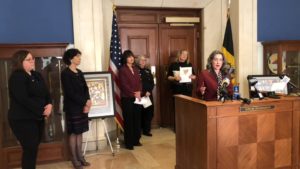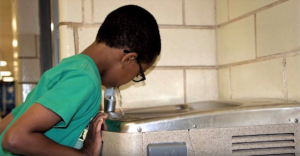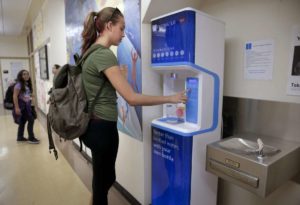Speak Out to Get the Lead Out!
Yesterday, our Executive Director, Michelle Naccarati-Chapkis delivered public comments at the Pittsburgh City Council’s meeting discussing lead in schools. Read them below:

“Good afternoon. I am Michelle Naccarati-Chapkis, executive director of Women for a Healthy Environment. Through education, technical assistance and advocacy our organization addresses environmental exposures that impact public health, including the neurotoxin lead.
Pittsburgh has a long tradition of focusing on lead exposure. One of the leading scientists and physicians in this area spent the majority of his career a few miles down the road in Oakland conducting research studies on the neurodevelopmental damage caused by lead poisoning. Dr. Herbert Needleman was credited with having played the key role in triggering environmental safety measures that have reduced average blood lead levels by an estimated 78 percent between 1976 and 1991.
According to the American Academy of Pediatrics, Centers for Disease Control and Prevention, the World Health Organization and many others, no amount of lead exposure is considered safe for children. We know that we need healthy spaces for children to be able to thrive, to excel in school.
1000 hours a year – that is the average amount of time students spend in school. And it is our job to make certain that during those hours, every occupant in the building, the student, the teacher (including pregnant women), the administrator, the staff member including school nurse, cafeteria worker and custodian are in the healthiest environment possible. Since the launch of 1000 Hours a Year in 2017, our Healthy Schools PA program has worked with twenty-one school districts, by assisting with the testing and remediation of lead in drinking water in schools. To those districts and others that have acted on this issue, and prioritized protecting the health of their school community, we commend you.

What we have learned through the 1000 Hours a Year initiative is that every single school that has been tested, showed the presence of lead – perhaps it was in the service line, the faucet, fixtures, the solder. But the good news is this is a completely preventable, solvable issue. We can fix this.
Our Healthy Schools PA, State of the Schools report released last fall told us that schools across southwestern PA are on average 66 years old. It’s time to stop the blame game or to be afraid to address this significant issue. Lead in schools is part of our aging infrastructure. We also found that some school districts were relying on their municipal water authority’s consumer confidence report to understand risk of lead exposure. We recommend schools do not rely on the water authority’s sampling data. The authority’s sampling data is based on a random sample of homes and is not reflective of potential lead-based water contamination risks in a school. Schools must address lead in drinking water, site specific.
So now is the time to call for action. It doesn’t cost an exorbitant amount of money to install filtered drinking water stations in every building, to turn off access to sinks in classrooms, and install filtering units on school cafeteria sinks. We need funding at the federal and state level to support schools so they can update and repair the aging infrastructure in these buildings. This is a community-wide problem, and we need to community-wide support to resolve it.

I would urge you to contact your school to ask about the status of testing and remediation. I would urge you to contact your elected officials to let them know this is an issue that demands attention and financial support. I would urge to join the Lead Safe Allegheny coalition that prioritizes primary prevention of lead and taking action at the local level. We can do better, we must do better for the sake of our children. Let’s honor the legacy of Dr. Needleman and commit to owning and addressing lead exposure and making a commitment to change. Thank you.”
To learn more about our 1,000 Hours a Year program, click here.
